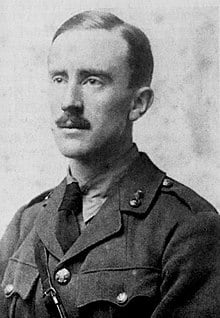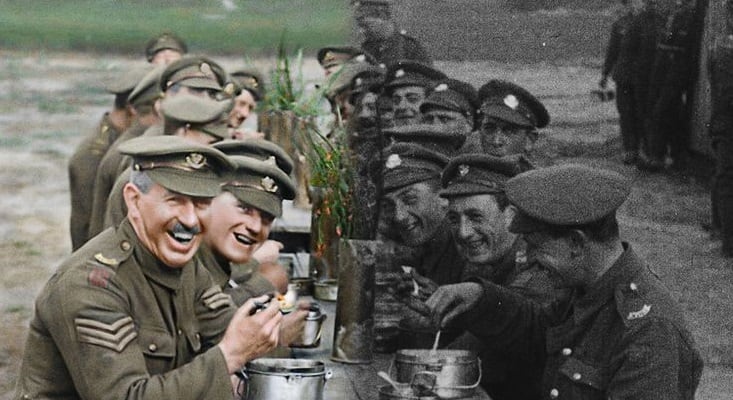Peter Jackson is most known for bringing J.R.R. Tolkien’s “Lord of the Rings” and “The Hobbit” Middle Earth universe to life in movie franchises that grossed nearly $6 billion in total box office revenue.
But now, the director has turned his attention to preserving the fading memories of World War I by using innovative production techniques to enhance and colorize almost 100 hours of original footage Jackson obtained from the Imperial War Museum in England.
“They Shall Not Grow Old” opened on Oct. 16 in the U.K. and has been universally praised by critics as a groundbreaking cinematic achievement.
The 99-minute documentary, which takes its name from Laurence Binyon’s poem, “For the Fallen,” features astonishingly sharpened and colorized footage so crisp it can even be viewed in 3D. To enhance the audio experience, Jackson and his team pulled excerpts from nearly 600 hours of World War I veteran interviews.
War diaries and letters provided another narrative source, and the team enlisted the help of expert lip-readers to dub in audio of what the featured soldiers are actually saying.
“The thing that jumps out at you are the people, you know, the humanity, because they suddenly become real human beings," Jackson said in an interview with Forces TV. “They’re not Charlie Chaplin ... jerky figures anymore."
It’s fitting that Jackson, who expertly transformed Tolkien’s universe into one of the most successful film franchises ever, would now turn his eye-of-Sauron-like focus to World War I. It was the revered author’s experiences during the Great War, after all, that served as his greatest inspiration for creating the internationally-loved novels.
As a young officer, Tolkien was sent off to the trenches of France only months after marrying his wife, Edith, in March 1916. “Junior officers were being killed off, a dozen a minute. Parting from my wife then ... it was like a death," Tolkien wrote of his experience.
The author would go on to contract trench fever while witnessing the horrors of combat during the Battle of the Somme, one of the war’s costliest campaigns. While hospitalized in England, he would turn many of his comrades, as well as his personal acquaintance with the death and destruction of war, into characters and settings in Middle Earth.

Until now, experiences of the Great War, like those encountered by Tolkien, have been relegated to books or camera footage so grainy or “jerky” that it has had the effect of making it nearly impossible for an audience to identify with. Jackson and his production team have overcome that visual disconnect, and the resulting images and story are enthralling.
“They’re real people with all the nuances and subtleties of human beings,” the director said. "So therefore, it told me that this should be a human story, not a war story.”
Shaping the story to revolve around the human beings immersed in the conflict, versus the conflict itself, even yielded a direct connection for Jackson.
At one point in the film, a sequence features footage of a mine explosion, one that Jackson told Forces TV his own grandfather witnessed from about 100 yards away on the other side of the exact explosion.
“So, I’m actually looking at something that my grandfather saw," he said. "I’m actually seeing what he saw from 100 years ago.”
That type of personal connection is what the film is designed to elicit, Jackson said, and the director hopes that the inventive editing techniques will allow viewers to attach renewed meaning to the conflict that ended in November 1918.
“Really, the war’s not that long ago that most people in Britain, and the old empire — Canada, Australia, New Zealand, South Africa — most of us have got family that were in that war, great grandfathers, great uncles," Jackson said. “And I think it’s great if we can just pause for a moment and actually think about them for a bit, because they’re part of our family, they’re part of us. So, let’s have a pause in our modern lives and have a think about what they went through.”
J.D. Simkins is the executive editor of Military Times and Defense News, and a Marine Corps veteran of the Iraq War.





